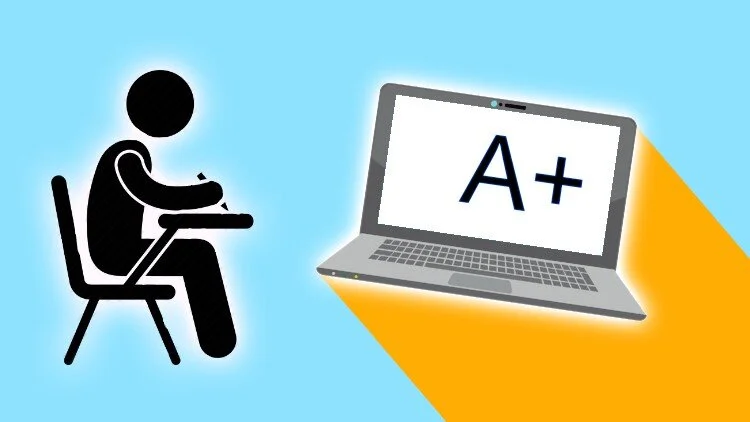More to do: Students are rebounding but haven’t recovered from COVID-related learning disruptions
There are encouraging signs in newly available student achievement data from the 2021–2022 school year: evidence the nation’s education system is rebounding from the pandemic but has not yet recovered.
Students showed growth on the MAP® Growth™ assessments in reading and math at rates that are comparable with prepandemic times. They also recovered some lost ground, but the extent of the improvement varies widely by grade level and student group. That’s a positive change from 2020 to 2021, when student growth slowed significantly due to COVID-19 disruptions.
These signs of rebounding show that the hard work of educators and students is paying off. However, we’re still not where we need to be.
Growth is up but not enough, and patterns vary
To get a picture of student achievement two-and-a-half years into the pandemic, NWEA researchers Megan Kuhfeld and Karyn Lewis, analyzed MAP Growth scores for more than eight million students in grades 3–8 in about 25,000 public schools across the country. They looked at achievement and growth trends for students who were in school during pandemic years, so from 2018–2019 through 2021–2022. They then compared the performance of those students to that of students in school from 2015–16 to 2018–2019, non-COVID-19 years.
Here’s what the researchers found:
There are signs of academic rebounding.
Gaps between current and prepandemic achievement have narrowed compared to spring 2021.
Achievement is still lower than we’d expect it to be absent the pandemic, particularly for historically marginalized students.
We’ve made critical strides as a nation, but COVID-19 is having a lasting impact, and the time it will take for students to catch up varies greatly across grade, subject, and student group. This research estimates it will take the average elementary-school student at least three years to catch up and much longer for older students if the rate of change continues at the same pace. You can explore this research in depth by reviewing the research brief.
Continued urgency
While we’re pleased to see evidence of academic rebounding, fully regaining lost ground will require students to make above-average progress going forward. The federal government has provided nearly $200 billion in funding for schools to address challenges associated with the pandemic, with $22 billion specifically dedicated to learning recovery using evidence-based interventions.
With the estimated timeline of recovery extending past the spending deadlines, education leaders and policymakers must scale programs that are working. Leaders must also plan for how they will sustain recovery efforts beyond September 2024, as it will take some districts, schools, and students additional time to fully recover.
Research estimates it will take the average elementary-school student at least three years to catch up and much longer for older students if the rate of change continues at the same pace.
Leaders must also continue to do more to address the persistent educational achievement inequities that existed prior to the pandemic. Returning students to prepandemic achievement levels will not be enough to close these long-standing disparities. Unless growth far exceeds average rates for hardest hit students, a lasting impact of the pandemic will be even bigger opportunity gaps and increased inequity in our education system.
What you can do
Below are steps school and system leaders and policymakers should consider taking to further spur student learning, along with examples of innovative recovery efforts happening around the country.
Invest in expanding instructional time for students, including high-quality summer programs. Summer programs are especially critical for groups of students who, even in nonpandemic years, lose more ground than others when school is out, a phenomenon known as “summer slide.” Programs must be accessible and high quality. When they are successful, they should scale. For example, the Indy Summer Learning Labs, a summer-learning initiative in Indianapolis, led to such clear learning gains that leaders expanded it. Teachers are compensated well, the program is free, instruction is rigorous, and it is aligned to standards. Students also participate in fun activities that boost engagement and participation.
Identify and target interventions for students most impacted by the pandemic. The NWEA policy and advocacy team recently led a Twitter chat on addressing COVID-related opportunity gaps, and participants said students with the highest needs must be the top priority. The federal government also has said a focus should be on disproportionately impacted student groups. One example of how this is happening at the state level is in Colorado, where a program that provides grants for high-impact tutoring to address unfinished learning prioritizes underserved students for whom COVID-learning gaps may exacerbate pre-existing inequities. In addition to targeting students who have been most impacted, it is also critical to “right-size” recovery efforts and use evidence to determine whether the positive impacts of the interventions being implemented will be enough to fully address the impacts of the pandemic.
Use data and strong data systems that provide continuous feedback on interventions to inform recovery. Collecting meaningful and timely data is essential. Educators and leaders need to use a variety of assessment data and other school- and district-level data in ways that inform decision-making and instructional practices. Data should shed light on achievement, attendance, measures of engagement, opportunities to learn, and who is receiving specific interventions. Some districts, such as Guilford County Schools in North Carolina, have developed or adopted tools like apps that teachers can download on their phones or laptops to make it easier to track enrollment and attendance in recovery programs. States should make such resources readily available. At the state level, North Carolina has allocated funds for researchers to collect, analyze, and report on the impacts of COVID-19 on schools and students.
Support teachers with the resources and professional learning opportunities they need to help their students succeed. The latest growth data shows educator efforts are paying off. A priority for this coming school year and beyond must be to support the success and well-being of teachers. In a recent Educators for Excellence survey sponsored by NWEA, educators highlighted the obstacles they’re facing. They said students’ mental health needs are far greater than before the pandemic and called on leaders to hire more counselors and mental health providers and do more to meet the needs of underserved students. Among other changes teachers want to see are greater access to high-quality curriculum, stepped-up leadership opportunities, better compensation, and assessment reporting systems that distinguish between material taught and untaught, a tool NWEA is developing. Teachers have been heroes in the pandemic. Let’s respond by giving them the support and resources they need.











